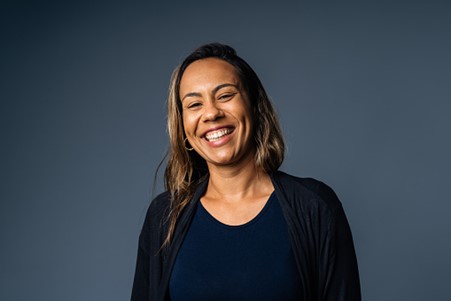
Everything you need to know about PLAB
08 September, 2023PLAB stands for Professional and Linguistic Assessments Board. It is a two-part examination that international medical graduates can use to access G...
PLAB stands for Professional and Linguistic Assessments Board. It is a two-part examination that international medical graduates can use to access GMC registration and, in turn, a license to practice medicine in the UK.
The PLAB exams aim to provide international medical graduates with qualifications to prove they have the necessary knowledge, skills, and experience to practice medicine safely in the UK. In turn, it ensures that all NHS patients receive the same standard of practice from every doctor. PLAB is split into two parts, PLAB 1 and PLAB 2.
In this video we explain what the PLAB exam is, the costs of each part and the best ways to prepare for success!
Chapters
You can skip ahead using these chapters:
- 00:00 - Introduction
- 00:40 - PLAB Examinations
- 01:55 - PLAB 1
- 03:12 - PLAB 2
- 04:59 - How to apply for GMC Registration
- 05:48 - Summary
We hope you enjoy the video and, if you are working through PLAB then please get in touch.
BDI Resourcing help international doctors with their recruitment and relocation in to the NHS, having assisted more than 1500 doctors on their journeys to over 100 NHS Trusts. Email your CV to us and we'll be happy to help.
Useful Links
Our comprehensive guide on how to get GMC Registration via PLAB.
Transcript
Here is a full transcript of the video:
00:06 Hi, everyone, and welcome to today's
00:07 episode of the Vlog series.
00:08 Today we're going to talk to you
00:10 about the PLAB route to GMC registration.
00:13 So the GMC have lots of different routes to
00:16 become registered with a licence to practise for them.
00:19 The first is PLAB.
00:20 You've also got the Royal College route and
00:22 then you've got the MTI programme as well.
00:25 PLAB is aimed at more junior doctors, so usually
00:28 at the entry point of an F2 level doctor,
00:31 or equivalent to that for a UK based candidate.
00:34 So this is the route that junior doctors are
00:36 going to take to gain their GMC registration.
00:43 So the PLAB examinations are for doctors
00:46 who have completed their primary medical qualification,
00:49 ideally sat, IELTS or OET as well
00:52 to prove their English language skills.
00:54 And they'll have graduated outside of the UK or the EU.
00:58 There's different pathways for the UK doctors
01:00 and different pathways for EU doctors.
01:02 So this is IMG focused.
01:05 You'll also note that it is aimed at F2
01:09 through to usually ST1/2 level doctors as well.
01:13 So you'll have graduated and probably completed
01:15 your internship and maybe one or two
01:18 years of post graduation practise as well.
01:22 So if you're looking to sit these exams and
01:25 you're a more senior doctor, it's not that you're
01:27 prohibited from sitting them, but you might find that
01:30 there's a better route for you, which perhaps would
01:33 be one of the Royal College examinations, because they're
01:35 aimed at a more senior level and doctors that
01:38 have got experience practising in a specific specialism.
01:42 They would give you access to roles
01:43 at an ST3+ level.
01:45 So basically plan for junior doctors and Royal College
01:50 route for more senior ST3+ level doctors.
01:58 So the PLAB 1 exam is the first
01:59 part of two in the PLAB series.
02:02 It's a multiple choice question with
02:05 five options for each question.
02:07 There's 180 questions and you're sitting
02:09 over a three hour period.
02:11 So it's a long exam and it's worth preparing well for.
02:15 It's going to cost you £255 and you
02:18 can make the application on the GMC's website.
02:21 There's also test centre centres all around the
02:23 world, so it's a pretty accessible exam.
02:25 You're not going to have to travel too
02:26 far in order to find a test centre
02:29 in terms of making preparations for the exam.
02:32 You're going to be tested on the clinical knowledge of
02:35 a doctor entering F2 level in the UK.
02:39 So it's pretty much going to be things that
02:41 you would have learned during your medical degree and
02:43 of course, during your internship year as well.
02:45 So it should be pretty straight forward.
02:48 Don't underestimate it, though.
02:50 The most recommended place to look for preparation is
02:53 the GMC's website for the GMC's PLAB Blueprint.
02:57 This outlines everything you're going to need
02:59 to know for part one examination.
03:02 But you could also have a look through
03:03 the Oxford Handbook of Clinical Medicine as well.
03:06 That's a great preparation tool for PLAB 1.
03:14 PLAB 2 is a structured OSCE examination, so you
03:19 do have to attend this one in person.
03:21 And the test centres are in the UK, in Manchester, so
03:24 you're going to need to get yourself a Visit visa.
03:27 We've got some separate information in our blog
03:29 series on how to obtain Visit visa.
03:31 It is pretty straightforward and if you come in
03:33 for the PLAB exam, it's a well trodden route,
03:35 so you shouldn't have too many issues with that.
03:38 Now, on the day itself, you're going to
03:40 be assessed at certain stations and you'll do
03:43 multiple stations across an entire day.
03:45 You'll be tested on your interpersonal skills,
03:48 your clinical management skills, your data gathering,
03:51 assessment and technical skills as well.
03:54 So it's an intense day and it's much harder to
03:57 prepare for because, of course, you're not quite sure what
03:59 patient situation you're going to be faced with.
04:02 There are, again, loads of YouTube channels devoted
04:06 to PLAB 2 preparation and lots of people
04:09 choose to go on a PLAB 2 course
04:11 just before they sit the PLAB 2 exam.
04:14 We would really recommend investing the time
04:18 and energy and effort and money into
04:20 sitting one of those courses.
04:22 Because, of course, if you fail, it's a lot
04:24 to reconsider having to come back to the UK,
04:27 travel again and you've only got four attempts in
04:32 which to pass your PLAB 2, and they must
04:35 be completed within three years of PLAB 1.
04:38 So it's vitally important that you pass it as early
04:41 on as you possibly can in terms of cost.
04:44 It's £974 at the moment to
04:47 sit the PLAB 2 examinations, and again,
04:50 all of the application is made online.
04:52 You'll need to have completed PLAB 1
04:54 before you can apply for PLAB 2.
05:01 So after you've completed PLAB 2, congratulations.
05:04 First of all, the next step, of course,
05:06 is to apply for your GMC registration.
05:09 That's all done on the GMC's website.
05:11 But in order to apply, you're going to need
05:13 to make sure that you've got your IELTS or
05:14 OET certificates to hand, your primary medical qualification verified
05:18 by EPIC ECFMG, as well as your certificates of
05:22 good standing to cover any practise that you've done
05:25 in the last five years.
05:26 Hopefully, that's a pretty straightforward process and
05:29 much easier than the exams that you've
05:30 sat over the last couple of years.
05:33 Once you've done that, you are free to
05:35 make your job applications on NHS jobs.
05:37 Or, of course, contact an agency like
05:39 BDI Resourcing, who will be able to help you
05:42 with your recruitment and relocation to the NHS.
05:50 So, in summary, the PLAB examinations are
05:53 more aimed at junior level doctors.
05:55 So if you're looking to come in at an FY2 or ST1/2 level,
06:00 then PLAB is going to be the route for you.
06:02 If you're looking to come in at a more senior
06:04 level, you might want to consider the Royal College routes.
06:07 However, you're not prohibited from sitting PLAB, so if
06:09 it's more accessible, you can still use that option.
06:12 It's a two part assessment, the first part being
06:15 a written multiple choice questions examination, and the second
06:19 part being a structured OSCE in person examination that
06:22 you need to travel to the UK for.
06:24 Complete these two and you'll get your GMC registration
06:27 and you'll be ready to work in the NHS.


